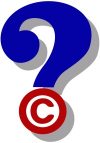I’ve always heard that Yogi Berra said, “It ain’t over ’till it’s over.” I’ve also heard (not to engage in body-image shaming) that, “It’s not over ’till the fat lady sings.” Now I hear that the copyright case between Oracle and Google, which I read was over (Oracle lost) is not over at all, and Google may have to pay Oracle EIGHT BILLION DOLLARS!!! What gives?
Signed,
Larry (I need another MIG/Yacht/House) Ellissoon
Dear Larry:
In litigation, we say that the case is over when all appeals (but not the attorneys) are exhausted. That day is one most litigants pray for, because it means that they have either won or lost, but that they get to stop paying attorney bills and they can sleep at night, not worrying about the case. The case of Oracle v. Google has not reached that day by any means. Here’s what’s been happening…
Oracle America, Inc. (“Oracle”) filed suit against Google (“Google”) in the United States District Court for the Northern District of California, alleging that Google’s unauthorized use of 37 packages of Oracle’s Java application programming interface (“API packages”) in its Android operating system infringed Oracle’s patents and copyrights. At the first trial, the jury found that Google infringed Oracle’s copyrights but not its patents, and deadlocked on the question of whether Google’s copying was a “fair use”. After the verdict, however, the judge found that the API packages were not copyrightable as a matter of law. Google won, and Oracle appealed to the Court of Appeals for the Federal Circuit (CAFC). The CAFC reversed the trial judge, finding that declaring code and the structure, sequence, and organization (“SSO”) of the Java API packages were entitled to copyright protection. The CAFC sent the case back to the trial court, with instructions to reinstate the jury’s infringement verdict and for further proceedings on Google’s fair use defense and, if appropriate, on damages. Google subsequently filed a petition for certiorari to the Supreme Court on the copyrightability determination, but the Supreme Court declined to hear the case. At the second jury trial, Google prevailed on its fair use defense (meaning that it was legal for them to use Oracle’s copyrighted APIs), the lawyers filed a lot of motions, all of which the trial judge denied, and Oracle appealed to the CAFC again.
On March 28, 2018, the CAFC decided the appeal. Not to keep you on tenter hooks but Oracle won! The appeals court ruled that Google’s use of the Java APIs was not fair, “as a matter of law”. That means that they could pretty-much ignore the fact that a jury thought that it was fair. How did the judges perform this legal sleight of hand, you ask? (The Doc thought he heard you ask…) Well, the CAFC spent a few pages telling us about how some issues in cases are “mixed questions of law and fact” and that some facts are “historical facts” while others are not. They told us that the Supreme Court has said that “historical facts” are “a recital of external events.” (The Doc guesses that this makes his intestinal distress after last night’s pizza not a historical fact.) The Court went on to say that historical facts related to the “who, what, where, when, how [and] how much” of the case. (The Doc is not even going to get into “alternative facts” except to say that some facts that are not historical are also not alternative, such as Einstein’s Theory of General Relativity, which, because it warps time, may destroy the concept of history entirely, but I digress…)
The CAFC then went on to say that the defense of fair use in copyright is “equitable” (meaning that it’s something for a judge to decide, and not a jury), and that as such, each claim of fair use, “must be decided on its own facts.” They then say that a jury should decide the “historical facts” needed, but not the “inferences or conclusions to be drawn from those facts.” Got that? Ultimately, Google and Oracle agreed that there were eight historical facts that the jury decided, and they agreed with the jury on four of them. The CAFC then addressed the remaining four.
The Doc will now “cut to the chase“: The CAFC said, “[W]e conclude that Google’s use of the declaring code and SSO of the 37 API packages was not fair as a matter of law.”
The case now goes back for a third trial – this time just about how much money Google owes Oracle. That will require the jury to decide how many Android devices have been sold, and how much Oracle is owed for each one, now, and in the future as well. That number could well be “antihistamine money” (so called by the famous Bullwinkle the Moose, because it is, “not to be sneezed at…”). Stay tuned. The Doc will let you know how many more appeals will be filed after the jury comes back with a number followed by many, many zeros.
Want to spend a great deal of your life in litigation? The attorneys at LW&H can’t wait to represent you. Give them a call about your APIs.
Until next month,
The Doc
— Lawrence A. Husick, Esq.


